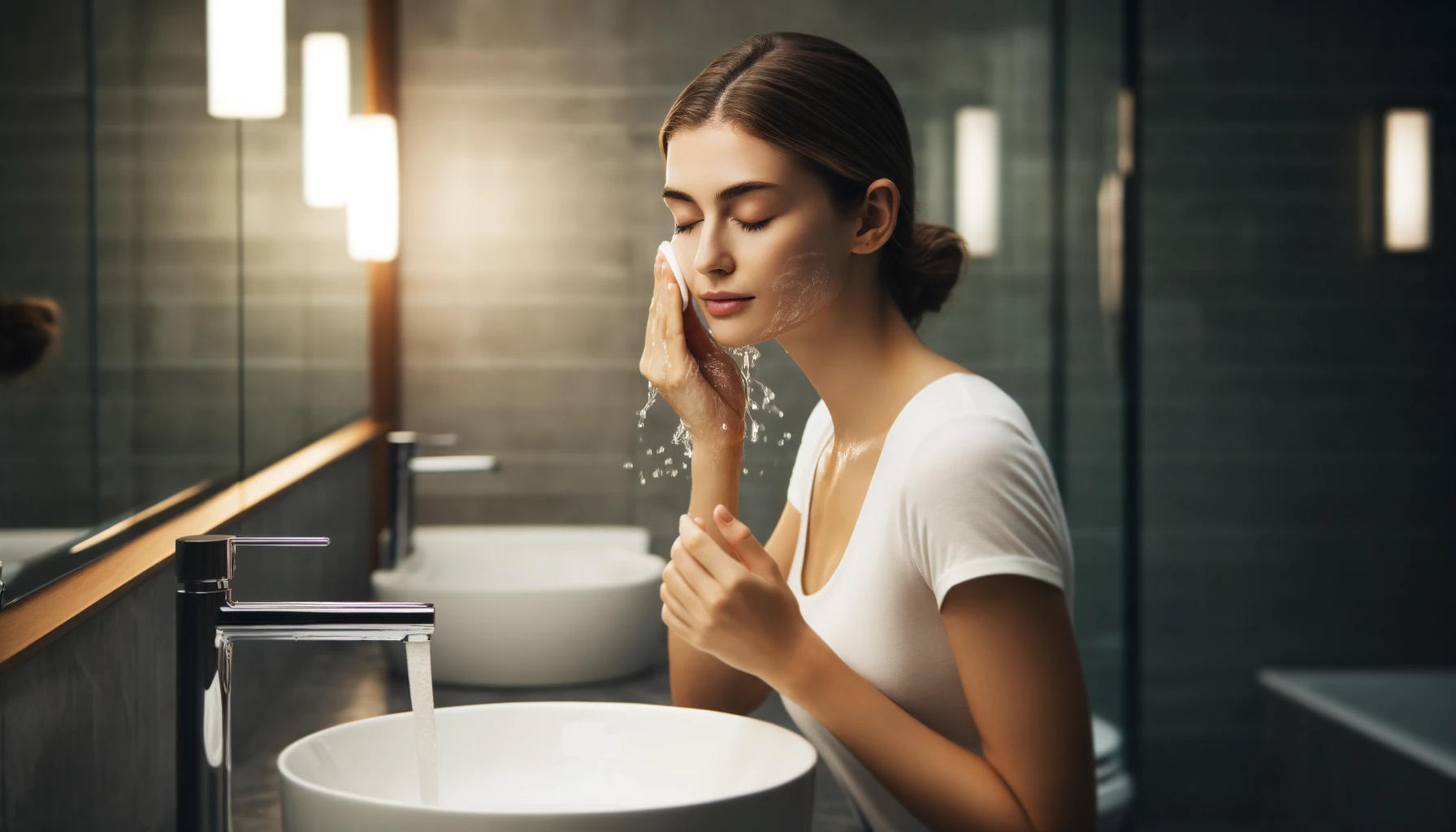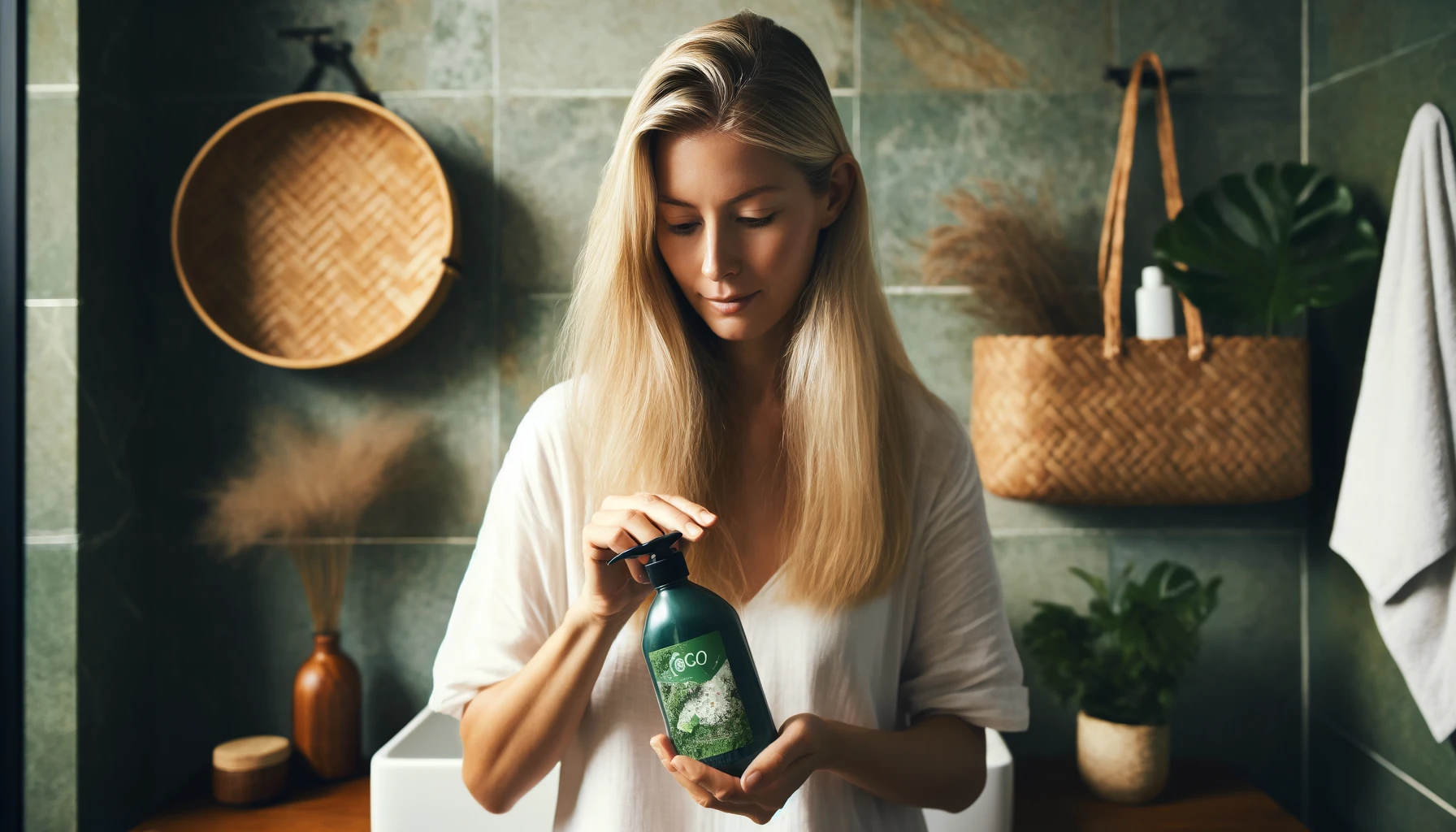
Skincare Staples: Affordable Solutions for Every Skin Type
Identify Your Skin Type and Concerns
Understanding your skin type is crucial as it helps in selecting the right skincare products. There are five main skin types: normal, dry, oily, combination, and sensitive. Determining your skin type involves observing whether your skin is prone to oiliness, dryness, sensitivity, or a combination of these factors.
If you have normal skin, you are fortunate as it is generally well-balanced, neither too oily nor too dry. However, it’s still essential to address any specific concerns you may have, such as acne, aging, hyperpigmentation, or uneven skin tone.
Dry skin often feels tight and may be prone to flaking or rough patches. Look for skincare products specifically formulated to hydrate and nourish dry skin. Ingredients like hyaluronic acid and ceramides can help replenish moisture levels and improve the skin’s barrier function.
Oily skin tends to produce excess sebum, leading to a shiny complexion and potential acne breakouts. Look for skincare products that help regulate oil production without stripping the skin. Ingredients like salicylic acid or tea tree oil can be beneficial for managing excess oil and preventing clogged pores.
Combination skin involves having both oily and dry areas on different parts of the face. It’s important to find a balance by selecting products that address both concerns. Consider using lighter moisturizers on oily areas and richer formulas on dry patches.
Sensitive skin is prone to irritation and may become red, itchy, or inflamed easily. Choosing gentle, fragrance-free skincare products is crucial to avoid further aggravation. Look for ingredients like aloe vera or chamomile, known for their soothing properties.
Once you have identified your skin type, it becomes easier to select skincare products that cater to your specific needs. By understanding your skin concerns, such as acne, aging, hyperpigmentation, or uneven skin tone, you can choose targeted products that address these issues effectively. Remember, everyone’s skin is unique, so what works for others may not work for you. Experiment, observe your skin’s response, and adjust your routine accordingly to achieve optimal skin health./
Cleanse and Exfoliate Regularly
Cleansing
Cleansing is an essential step in any skincare routine. It helps remove dirt, oil, and impurities from the skin’s surface, keeping it clean and fresh. When choosing a cleanser, opt for a gentle formula that effectively cleanses without stripping the skin of its natural oils.
Avoid harsh cleansers or those containing alcohol, as they can cause dryness, irritation, and imbalance the skin’s pH level. Look for ingredients like aloe vera, chamomile, or tea tree oil, which have soothing and antibacterial properties.
Exfoliation
Exfoliation is the process of removing dead skin cells from the surface of the skin, revealing a smoother and brighter complexion. It also helps unclog pores and allows better absorption of other skincare products.
There are two main types of exfoliants: chemical and physical. Chemical exfoliants contain alpha-hydroxy acids (AHAs) or beta-hydroxy acids (BHAs), which gently dissolve dead skin cells. Physical exfoliants, on the other hand, use granules or scrubbing particles to manually remove the dead skin cells.
When choosing an exfoliant, consider your skin type and sensitivity. If you have sensitive or dry skin, opt for a gentle physical exfoliant or a mild chemical exfoliant with lower concentrations. For oily or acne-prone skin, a stronger chemical exfoliant with BHAs can be more effective.
It is important not to over-exfoliate, as it can irritate the skin. Aim to exfoliate 2-3 times a week, adjusting the frequency based on your skin’s response.
Tips
- Always cleanse your face before exfoliating to ensure a clean canvas and maximize the exfoliation’s effectiveness.
- Be gentle when exfoliating, especially if using a physical exfoliant. Avoid scrubbing too harshly, as it can damage the skin.
- If you have sensitive or acne-prone skin, consider using a chemical exfoliant with salicylic acid, as it can penetrate the pores and help treat breakouts.
- After exfoliating, follow up with a moisturizer to replenish and hydrate the skin.
Remember, both cleansing and exfoliating are important steps in maintaining healthy and radiant skin. By incorporating these practices into your skincare routine, you can achieve a clearer, smoother, and more youthful complexion.
Moisturize Adequately
Moisturizing is an essential step in any skincare routine, regardless of your skin type. It helps maintain skin health and hydration, leaving your skin looking and feeling its best. Here are some key guidelines to follow when it comes to moisturization:
Choose the Right Moisturizer
When selecting a moisturizer, it’s important to consider your skin type and any specific concerns you may have. Dry skin types will benefit from richer, cream-based moisturizers that provide intense hydration. On the other hand, oily skin types may prefer lightweight, oil-free formulas that won’t feel heavy or contribute to excess oil production.
Look for moisturizers that contain key ingredients like hyaluronic acid, glycerin, ceramides, or essential oils. These ingredients help to retain moisture in the skin and provide nourishment. It’s also important to avoid products that contain potential irritants or allergens, especially if you have sensitive skin.
Apply Morning and Night
To keep your skin adequately moisturized throughout the day, make sure to apply your moisturizer both in the morning and at night. In the morning, moisturizing provides a hydrating base for makeup application and protects your skin from environmental stressors. Before going to bed, moisturizing helps replenish lost moisture and supports the skin’s natural repair processes during sleep.
Consider Targeted Concerns
If you have specific skin concerns, such as aging, hyperpigmentation, or acne, there are moisturizers available that target these issues. Look for products that contain active ingredients like peptides, vitamin C, niacinamide, or retinol. These ingredients can help address your concerns and promote healthier-looking skin.
However, keep in mind that targeted moisturizers should be used in addition to a basic moisturizer and not as a substitute. It’s important to maintain overall skin hydration while also addressing specific concerns.
Don’t Forget Sunscreen
While not directly related to moisturization, it’s essential to remember that incorporating sunscreen into your skincare routine is crucial. Sunscreen helps protect your skin from harmful UV rays, which can cause premature aging and increase the risk of skin cancer.
Choose a broad-spectrum sunscreen with an SPF of 30 or higher specifically formulated for the face. Apply it as the final step in your skincare routine, generously covering all exposed areas, and remember to reapply every two hours when spending prolonged periods outdoors.
By following these guidelines and finding the right moisturizer for your skin type and concerns, you can ensure your skin stays hydrated, healthy, and radiant.
Protect your skin from the sun
Protecting your skin from the sun’s harmful UV rays is an essential step in any skincare routine. Not only does regular sun protection prevent premature aging and reduce the risk of skin cancer, but it also helps maintain a healthier and more youthful complexion.
Choose a broad-spectrum sunscreen
When selecting a sunscreen, it’s important to choose a broad-spectrum formula that provides protection against both UVA and UVB rays. Look for a sunscreen with a Sun Protection Factor (SPF) of 30 or higher to ensure adequate protection.
Specifically formulated for the face
Ensure that the sunscreen you choose is specifically formulated for the face. Facial sunscreens are usually lighter in texture and less likely to clog pores or cause breakouts. They are designed to be more gentle and suitable for the delicate skin on your face.
Apply as the final step of your skincare routine
After cleansing, toning, and moisturizing, apply sunscreen as the final step of your skincare routine. This ensures that the sunscreen forms a protective barrier on your skin, shielding it from harmful UV rays throughout the day.
Reapply every two hours
Remember to reapply sunscreen every two hours, especially if you are spending prolonged periods outdoors or engaging in activities that cause sweating or rubbing. This ensures continuous protection and minimizes the risk of sunburn or skin damage.
Crucial for all skin types
Sun protection is crucial for all skin types, even if you have darker or more melanin-rich skin. While individuals with fair skin may be more susceptible to sunburn, the sun’s rays can still cause damage to all skin tones. Incorporating sun protection into your skincare regimen is essential year-round.
| Key Points |
|---|
|
By prioritizing sun protection in your skincare routine, you can effectively safeguard your skin against the damaging effects of UV rays, promoting healthier, more radiant skin in the long run.
Incorporate targeted treatments
When addressing specific skincare concerns, it can be beneficial to incorporate targeted treatments into your routine. These treatments are formulated to address issues such as acne, hyperpigmentation, fine lines, or elasticity. By selecting the right treatments and utilizing active ingredients specific to your concerns, you can effectively improve the overall health and appearance of your skin.
Serums
Serums are lightweight, highly concentrated products that are designed to deliver specific active ingredients directly into the skin. They can be an excellent addition to your skincare routine, providing targeted treatment for various concerns. It is important to select a serum that includes ingredients suitable for your needs.
- Vitamin C serums: These serums help brighten the skin and fade dark spots. They are packed with antioxidants that can protect the skin from environmental damage and promote a more even complexion.
- Retinol serums: Retinol is derived from vitamin A and known for its ability to improve skin texture and reduce the appearance of fine lines. It can help stimulate collagen production and promote cell turnover, resulting in smoother and more youthful-looking skin.
When incorporating serums into your routine, start with a lower concentration to allow your skin to adjust. Gradually increase usage as tolerated, ensuring to follow the product’s instructions for best results.
Face Masks
Face masks are an excellent way to provide intensive treatment to the skin, targeting specific concerns and providing additional nourishment. Depending on your needs, there are masks available for various purposes.
- Clay masks: Clay masks are great for oily or acne-prone skin as they help absorb excess oil and unclog pores. They can also help improve the overall texture of the skin.
- Sheet masks: Sheet masks are soaked in serums or essences and are excellent for providing hydration and delivering active ingredients directly to the skin. They come in different varieties, targeting specific concerns such as brightening, soothing, or hydrating.
When using face masks, follow the instructions provided by the manufacturer. Apply the mask to clean skin and leave it on for the recommended time before removing and gently massaging any remaining product into the skin.
Spot Treatments
Spot treatments are designed to target specific areas of concern, such as acne breakouts or dark spots. These treatments typically come in the form of creams or gels and can be applied directly to the affected areas.
- Acne spot treatments: These treatments usually contain ingredients like benzoyl peroxide or salicylic acid, which can help reduce inflammation and kill acne-causing bacteria.
- Dark spot correctors: Dark spot correctors often contain ingredients such as hydroquinone, kojic acid, or vitamin C, which can help fade hyperpigmentation and even out skin tone.
When using spot treatments, apply a small amount directly to the affected area and allow it to absorb into the skin. Follow the instructions provided, as some spot treatments may be intended for overnight use only.
Remember, incorporating targeted treatments into your skincare routine should be done in conjunction with a consistent overall regimen. It is important to assess your skin’s needs regularly and adjust your routine accordingly. By incorporating these targeted treatments, you can address specific concerns and achieve healthier, more radiant skin.
Hydrate from the Inside Out
Maintaining proper hydration is essential for healthy skin. In addition to following a skincare routine, it’s important to take care of your body internally. Here are some tips to help you hydrate from the inside out:
- Drink plenty of water: Water is crucial for maintaining skin hydration and overall health. Aim to drink at least eight glasses of water daily. Drinking water helps flush out toxins and keeps your skin looking vibrant and youthful.
- Incorporate hydrating foods into your diet: Stay hydrated by consuming fruits and vegetables that have high water content. Foods like cucumber, watermelon, strawberries, and lettuce are excellent choices. These hydrating foods not only help replenish your body’s water levels but also provide essential vitamins and minerals.
- Avoid sugary and processed foods: Limit your consumption of sugary and processed foods as they can contribute to inflammation and skin issues. These foods may cause your skin to appear dull and acne-prone. Instead, opt for a balanced diet rich in nutrients from whole, unprocessed foods.
Remember, maintaining hydration is a key factor in achieving and maintaining healthy, glowing skin. Taking care of your body by drinking water, eating hydrating foods, and avoiding unhealthy options can make a significant difference in your skin’s appearance and overall well-being.
Prioritize consistency and patience
Establishing a skincare routine takes time and consistency. To see significant results, commit to using your chosen products regularly and following the recommended steps diligently.
It’s important to be patient when introducing new products into your routine, as skincare is not an overnight solution. It may take several weeks before you start noticing visible improvements. So, it’s crucial to give your skin enough time to adjust and adapt to the new products.
Avoid continuously switching products too quickly, as this can disrupt the balance of your skin and hinder your progress. Stick to one set of products for a reasonable amount of time to evaluate their effectiveness.
Regularly reassess your skincare routine based on your skin’s evolving needs and make adjustments accordingly. Skincare is a journey, and finding the right products and routine for your skin can be a process of trial and error. It’s important to note that what works for someone else may not work for you, as every individual’s skin is unique.
Remember, consistency is key when it comes to skincare. Be diligent in following your routine day and night, and make sure to incorporate all the essential steps, such as cleansing, exfoliating, moisturizing, and sun protection.
As you embark on your skincare journey, it’s also essential to educate yourself about reliable sources of information. The American Academy of Dermatology and The National Institute of Arthritis and Musculoskeletal and Skin Diseases are two reputable sources where you can find trusted information about skincare and related topics.
Remember that finding the perfect skincare routine is a personal process and may require some trial and error. Stay consistent, be patient, and be kind to your skin. With time and dedication, you can achieve healthy, radiant skin.


